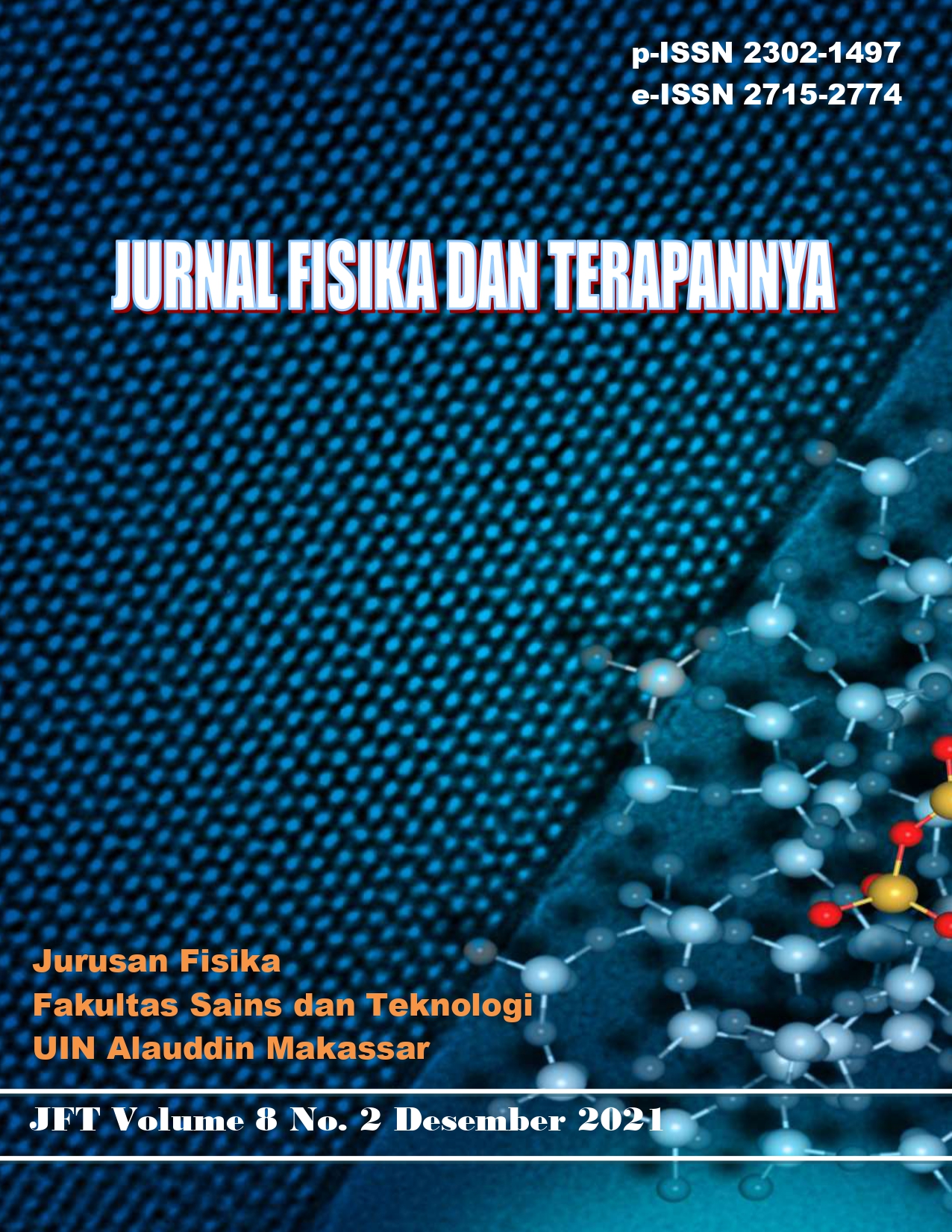EFEK SINTESIS SILANE COUPLING AGENT PADA SIFAT FISIS DAN MEKANIS KOMPOSIT DENGAN PENGISI SERBUK KENAF DAN RESIN EPOKSI
Abstrak
This study aims to see the effectiveness of the chemical treatment of silane coupling agent on the physical properties (density and water absorption) and mechanical properties (tensile strength and impact strength) of the kenaf powder composite. Kenaf powder was alkalized using NaOH for 4 hours, then mashed using a grinding machine until it passed a 50 mesh sieve. The kenaf powder that has passed the sieve is then chemically treated with a silane coupling agent solution. Variations in the concentration of the silane coupling agent solution used were 0%, 10%, 20% and 30% of the mass of kenaf powder. Kenaf powder which has been synthesized with a silane coupling agent is then mixed with epoxy resin adhesive with a ratio of 30/70 in weight percent. The composite compaction process uses a Hydrolic Hot Press compacting machine with a pressure of 20 Bar at a temperature of 125 oC and a holding time of 15 minutes. The result of this research is that the treatment with 20% silane coupling agent on kenaf powder is effective in improving the physical and mechanical properties of the composite.
##plugins.generic.usageStats.downloads##
Referensi
Arkles, B. (2011). Hydrophobicity, hydrophilicity and silane surface modification. Morrisville: Gelest Inc.
Chand, N., & Fahim, M. (2020). Tribology of natural fiber polymer composites. Cambridge: Woodhead publishing.
Chen, L., Wang, Y., Fei, P., Jin, W., Xiong, H., & Wang, Z. (2017). Enhancing the performance of starch-based wood adhesive by silane coupling agent (KH570). International journal of biological macromolecules, 104(A), 0141-8130. https://doi.org/10.1016/j.ijbiomac.2017.05.182.
Chuang, W., Geng-sheng, J., Lei, P., Bao-lin, Z., Ke-zhi, L., & Jun-long, W. (2018). Influences of surface modification of nano-silica by silane coupling agents on the thermal and frictional properties of cyanate ester resin. Results in Physics, 9, 2211-3797.
https://doi.org/10.1016/j.rinp.2018.03.056
Faruk, O., Bledzki, A. K., Fink, H. P., & Sain, M. (2014). Progress report on natural fiber reinforced composites. Macromolecular Materials and Engineering, 299(1), 1439-2054. https://doi.org/10.1002/mame.201300008
Ginting, D., Wirman, S.P. and Lubis, Y.M., 2019. Modification of Kenaf Fibers Composite and Empty Oil Palm Bunch With Silane Coupling Agent Addition. Prosiding CELSciTech, 4, 2541-3023. www.ejurnal.umri.ac.id/index.php/PCST/article/download/1733/1011.
Ismail, I., Jalil, Z., Olaiya, N. G., Abdullah, C. K., Fazita, M. R. N., & Abdul Khalil, H. P. S. (2020). Properties and Characterization of New Approach Organic Nanoparticle-Based Biocomposite Board. Polymers, 12(10), https://doi.org/10.3390/polym12102236
Purboputro, P. I., & Hariyanto, A. (2017). Analisis sifat Tarik dan Impak komposit serat rami dengan perlakuan Alkali dalam Waktu 2, 4, 6 dan 8 jam Bermatrik Poliester. Media Mesin: Majalah Teknik Mesin, 18(2). 2541-4577. https://doi:10.23917/mesin.v18i2.5238.
Pereira, A. C., Monteiro, S. N., de Assis, F. S., Margem, F. M., da Luz, F. S., & de Oliveira Braga, F. (2017). Charpy impact tenacity of epoxy matrix composites reinforced with aligned jute fibers. Journal of Materials Research and Technology, 6(4), 2238-7854. https://doi.org/10.1016/j.jmrt.2017.08.004.
Nansu, W., Ross, S., Ross, G., & Mahasaranon, S. (2019). Effect of crosslinking agent on the physical and mechanical properties of a composite foam based on cassava starch and coconut residue fiber. Materials Today: Proceedings, 17(4), 2214-7853 . https://doi.org/10.1016/j.matpr.2019.06.249
S. Srisuwan, N. Prasoetsopha, N. Suppakarn, P. Chumsamrong (2014), The Effects of Alkalized and Silanized Woven Sisal Fibers on Mechanical Properties of Natural Rubber Modified Epoxy Resin, Energy Procedia, 56, 1876-6102. https://doi.org/10.1016/j.egypro.2014.07.127.
Sani, R. A. (2021). Karakterisasi Material. Jakarta: Bumi Aksara.
Yantaboot, K., & Amornsakchai, T. (2017). Effect of preparation methods and carbon black distribution on mechanical properties of short pineapple leaf fiber-carbon black reinforced natural rubber hybrid composites. Polymer Testing, 61. 0142-9418. https://doi.org/10.1016/j.polymertesting.2017.05.026.


